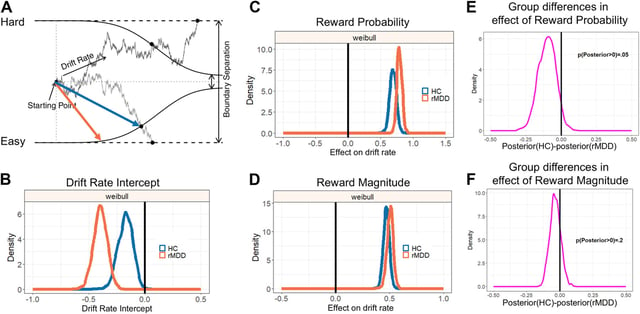Overview
- Individuals recovered from depression are generally less willing to exert effort for rewards unless the rewards are large and highly certain.
- The study found that when presented with high-value, guaranteed incentives, recovered patients matched or exceeded the motivation levels of healthy individuals.
- Researchers used advanced computational modeling to analyze decision-making processes, isolating how reward magnitude and effort cost influence motivation.
- Unmedicated participants were specifically chosen to avoid the confounding effects of antidepressants on reward processing.
- The findings aim to inform the development of targeted, incentive-based interventions to reduce relapse risk and support sustained recovery.

